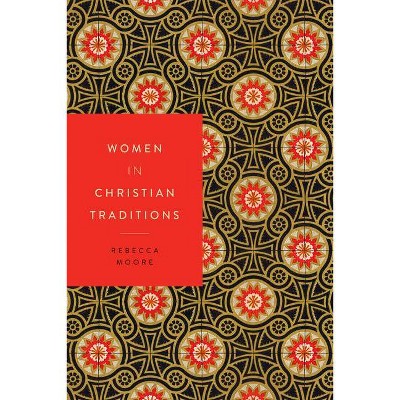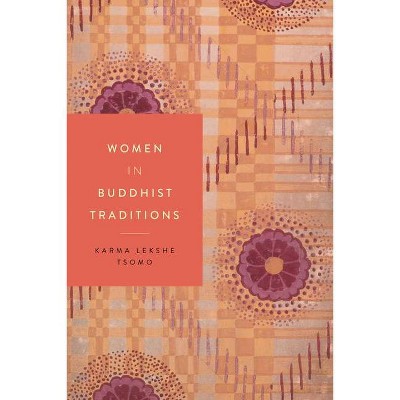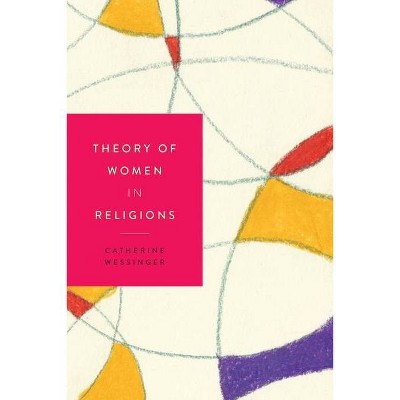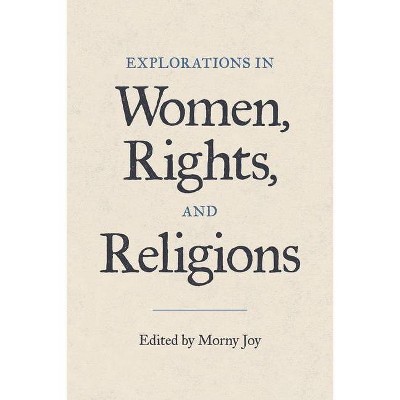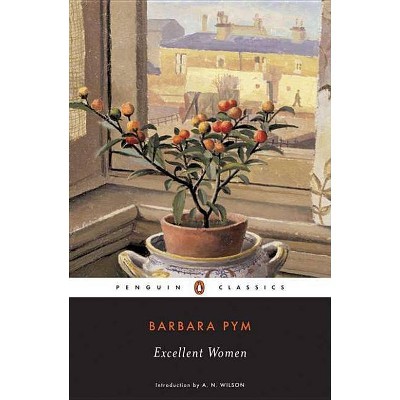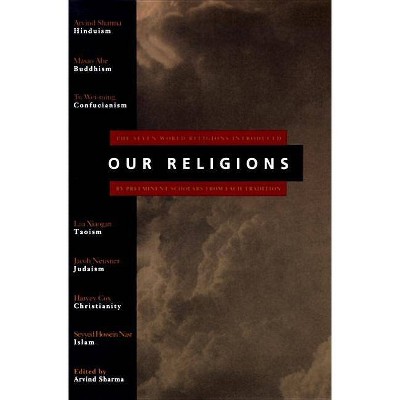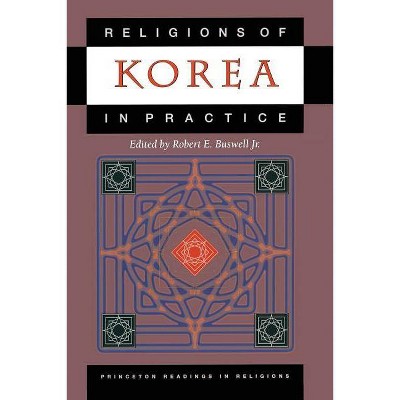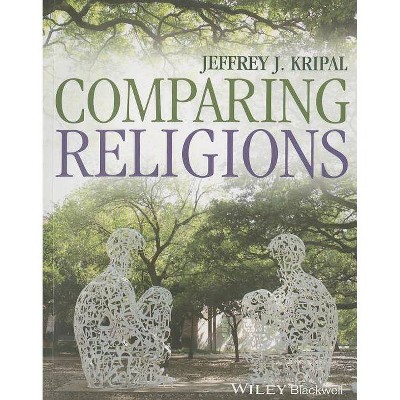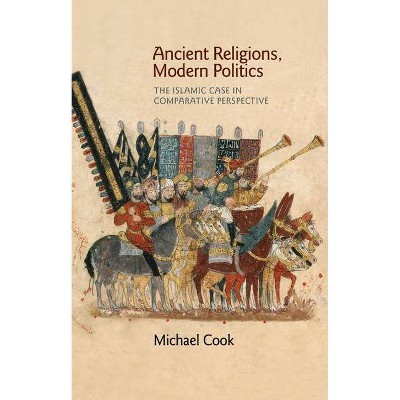Women in Japanese Religions - (Women in Religions) by Barbara R Ambros (Paperback)
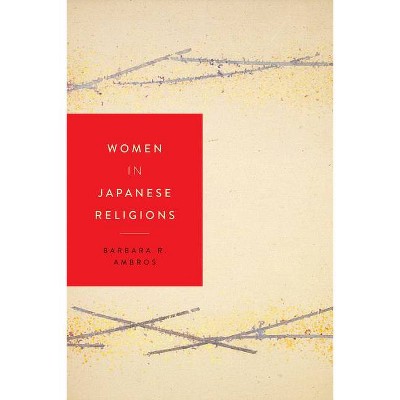
Similar Products
Products of same category from the store
AllProduct info
<p/><br></br><p><b> Book Synopsis </b></p></br></br><p>Scholars have widely acknowledged the<br>persistent ambivalence with which the Japanese religious traditions treat<br>women. Much existing scholarship depicts Japan's religious traditions as mere<br>means of oppression. But this view raises a question: How have ambivalent and<br>even misogynistic religious discourses on gender still come to inspire devotion<br>and emulation among women? <p/>In Women in Japanese Religions, Barbara R. Ambros<br>examines the roles that women have played in the religions of Japan. An important<br>corrective to more common male-centered narratives of Japanese religious<br>history, this text presents a synthetic long view of Japanese religions from a<br>distinct angle that has typically been discounted in standard survey accounts<br>of Japanese religions. <p/>Drawing on a diverse collection of<br>writings by and about women, Ambros argues that ambivalent religious discourses<br>in Japan have not simply subordinated women but also given them religious<br>resources to pursue their own interests and agendas. Comprising nine chapters<br>organized chronologically, the book begins with the archeological evidence of<br>fertility cults and the early shamanic ruler Himiko in prehistoric Japan and<br>ends with an examination of the influence of feminism and demographic changes<br>on religious practices during the "lost decades" of the post-1990 era. By<br>viewing Japanese religious history through the eyes of women, Women in Japanese Religions presents a<br>new narrative that offers strikingly different vistas of Japan's pluralistic<br>traditions than the received accounts that foreground male religious figures<br>and male-dominated institutions. <p/>Additional Resources</p><p/><br></br><p><b> Review Quotes </b></p></br></br><br>[] [S]heassert[s] in the final sentence of her conclusion that the study of a subject as complex as religion and gender required a perspective of the long duree and must emphasize & change and diversity in a specific, culturally bounded context, which is a project that anthropologists can endorse and perform.-- "Anthropology Review Database"<br><br>Ambros book is extremely interesting and informative. Her writing style is easy to read and never gets in the way of her argument.-- "Nova Religio"<br><br>Ambros challenges entrenched stereotypes while providing evidence of fertility cults in prehistoric Japan and ends her discussion with an examination of the influence of feminism during the post-1990 era. The goal of the book is to provide a comprehensive perspective that entails the overarching scope of centuries; in this Ambros succeeds.-- "Choice"<br><br>Ambros gives careful, nuanced treatment to her subject with an array of historical instances and trends that defy simple conclusions.-- "Japan Review"<br><br>Bring[s] a new understanding of the many ways in which Japanese women have articulated and made use of their lived religious experiences throughout their history . . .a valuable addition to the fields of Japanese history, religious studies, and womens studies.-- "Japanese Journal of Religions Studies"<br><br>Fills several lacunae in the landscape of Japanese religiosity in one volume. Careful research informs Ambross thoughtful interpretations of the contributions and significance of women throughout Japanese history. Scholars and students of Japan, whether of religion, history, anthropology, sociology, or gender studies, will find that this volume enables them to make more informed analyses in their respective fields. Ambros's fluid writing style makes this information-rich volume highly accessible and satisfying to read.--Paula Arai, author of Bringing Zen Home: The Healing Heart Of Japanese Women's Rituals<br><br>The books contents are well balanced, covering a variety of important primary sources with well-known, historicized, and recent acclaimed scholarship in the study of Japanese religions and womens history. In doing so, the book offers not only a thought-provoking and nuanced narrative but also draws attention to the striking historical facts and long-term trends that no doubt will invite further consideration and fruitful discussions in class. Succinctly written and well edited, this book will suit both upper undergraduate and graduate courses in Japanese and East Asian studies, as well as courses in world history and religious studies.-- "Journal of Religion in Japan"<br><br>There is no doubtWomen in Japanese Religionsby Barbara R. Ambros is a welcome resource for students at the introductory level who want to understand Japanese religion and women. Questions for discussion are included at the end of the book, which will be of use to instructors as well.-- "Reading Religions"<br><br>This book is a valuable resource for students of Japanese studies, religious and gender studies, and history.-- "Religious Studies Review"<br><br>This concise volume provides a nuanced account of Japanese womens religious activities from ancient times to the present. Attentive to social context, historical change, and Japans religious diversity, Barbara Ambros explores the complex ways in which religious ideas and practices have both constrained women and also offered them opportunities to advance their own goals and interests. This book challenges entrenched stereotypes and makes significant strides in redressing the androcentric biases of earlier scholarship. It will benefit both students and specialists and encourage rethinking of Japanese religions from a gendered perspective.--Jacqueline Stone, Princeton University<br>
Price History
Price Archive shows prices from various stores, lets you see history and find the cheapest. There is no actual sale on the website. For all support, inquiry and suggestion messagescommunication@pricearchive.us
